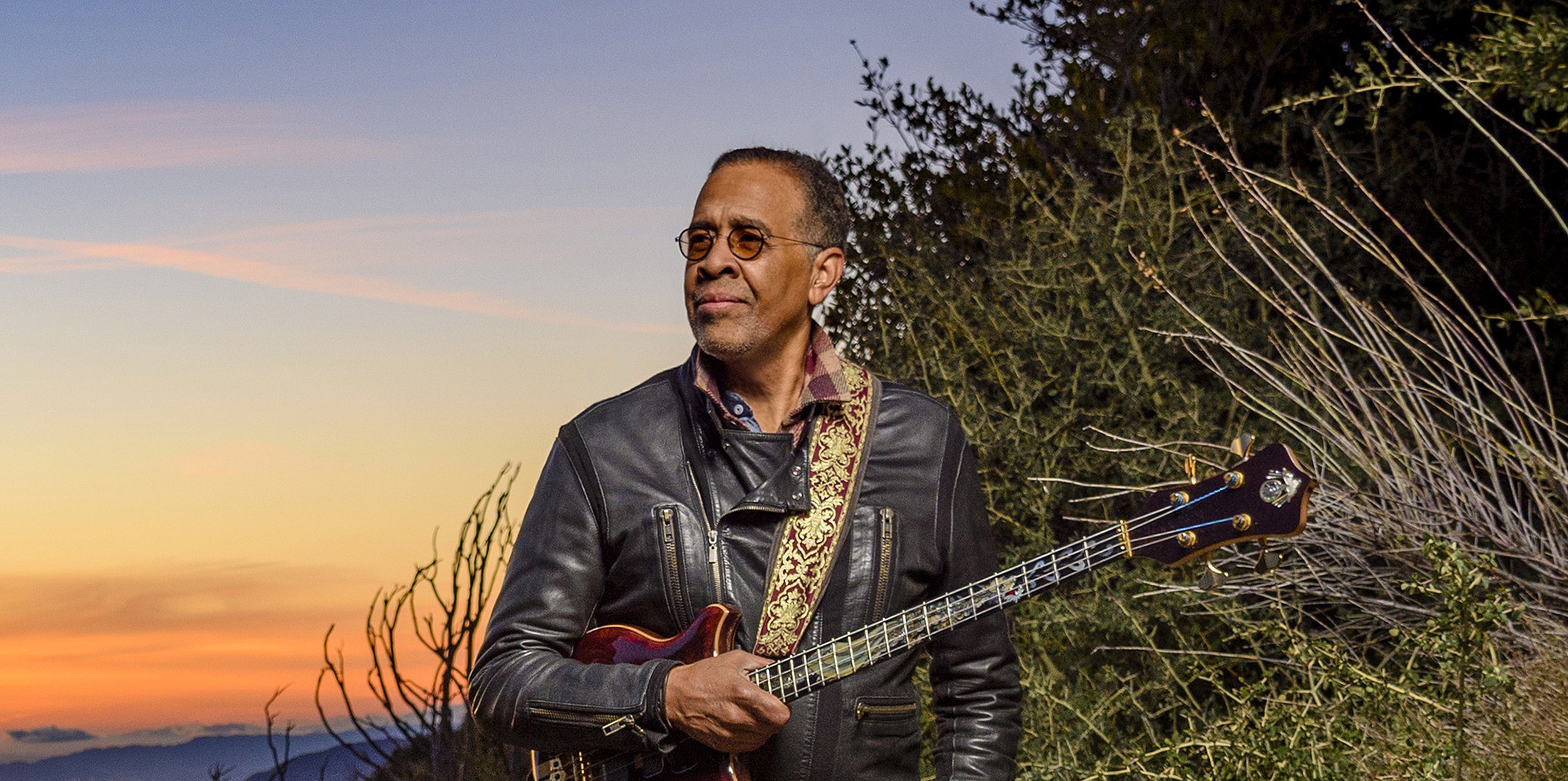Stanley Clarke, one of the most celebrated acoustic and electric bass players in the world, will perform at the John Coltrane International Jazz and Blues Festival (JCIJBF) on Sunday, Aug. 31, 2025. He is a four-time Grammy® Award-winner, NEA Jazz Master, composer, arranger, conductor, producer and a renowned composer of scores for television and film.
Adding to the excitement of having the legendary bassist and composer, is the fact that Clarke’s new album Last Train to Sanity will drop this summer, a few months before the Festival. He has put together a band named of young musicians for the album. The band is named “4Ever” Members are Colin Cook on guitar, Beka Gochiashvili on piano and keyboards, Emilio Modest on saxophones, Evan Garr on violin, and Jeremiah Collier on drums.
In his early years, Clarke moved from the violin that his fingers were too big for, and the cello that never sat well with him, to an abandoned acoustic double bass in the corner of a school band room in hometown Philadelphia, PA. He studied classical music at the Settlement School, practicing and perfecting his technique with the goal of playing with the city’s symphony orchestra.
Instead, at age 15, he made his professional debut with a gig at the landmark Showboat Lounge, a place where many of the greats like Miles Davis, Coltrane, Art Blakey, Stan Getz and many others had played and recorded. Clarke got his first electric bass soon after.
Rise to Fame with Return to Forever
In the early 1970s, Clarke joined forces with legendary pianist Chick Corea to form the groundbreaking jazz fusion band Return to Forever. The group became a cornerstone of the fusion movement, blending jazz with elements of rock, funk, and Latin music. Clarke’s virtuosic bass lines and improvisational prowess were key to the band’s success, and he quickly gained recognition as one of the most innovative bassists of his time.
Solo Career and Beyond
The release of his self-titled debut album Stanley Clarke in 1974 and the widely regarded album School Days two years later, took the world by storm transforming the bass into a melodic and harmonic lead instrument. Clarke’s hypnotic, innovative approach to playing the instrument liberated the bass from the back to the front of the stage. In the process he became the first jazz-fusion bassist to headline tours, sell-out shows worldwide and have recordings reach gold status. Clarke’s talent and success directly influenced and inspired generations of bassists who followed in his footsteps.
In addition to the award won by RTF, Clarke’s other Grammys® include Best Contemporary Jazz Album for The Stanley Clarke Band and Best Jazz Instrumental Album for Forever. Recorded with Corea and White, Forever also won a Latin Grammy® for Best Instrumental Album.
Beyond his solo work, Clarke has collaborated with a who’s who of the music world, including Quincy Jones, Paul McCartney, Stevie Wonder, and Herbie Hancock. His ability to seamlessly adapt to different genres has made him a sought-after collaborator and a true musical chameleon.
Contributions to Film and Television
Clarke’s talents extend beyond the stage and studio. He has composed scores for 70 films and television projects, including the films Boyz n the Hood and What’s Love Got to Do with It. His work in this area has earned him critical acclaim and further showcased his versatility as an artist.
Legacy and Impact
Stanley Clarke’s life and career are a testament to the power of innovation and the pursuit of excellence. Whether through his virtuosic performances, genre-defying compositions, or contributions to film and television, Clarke has left an indelible mark on the world of music. His legacy continues to inspire and elevate the art of bass playing, ensuring that his influence will be felt for years to come. His affinity for creating the rich bottom sounds almost single handedly laid the foundation from which many of today’s music hybrids emerged.




